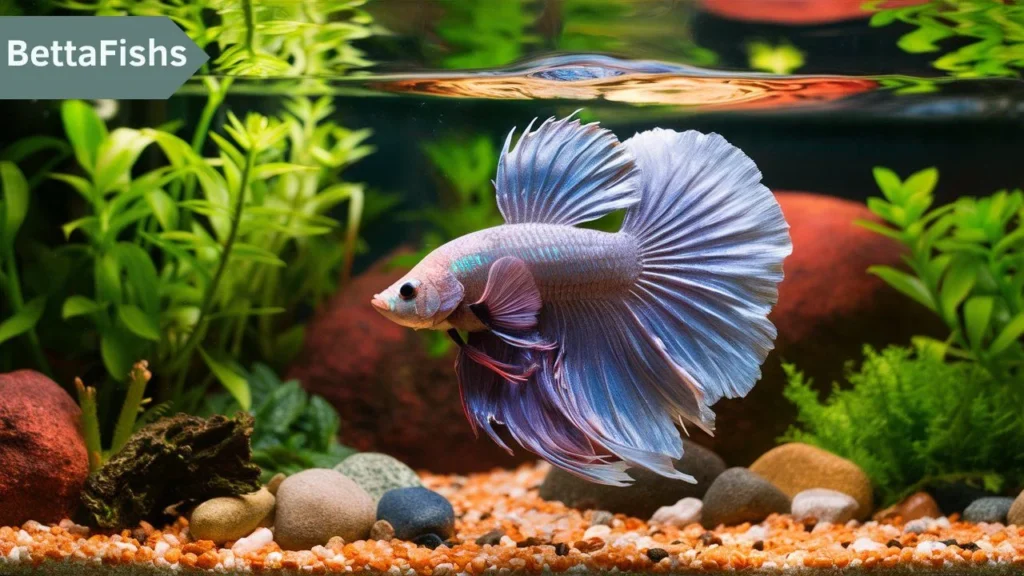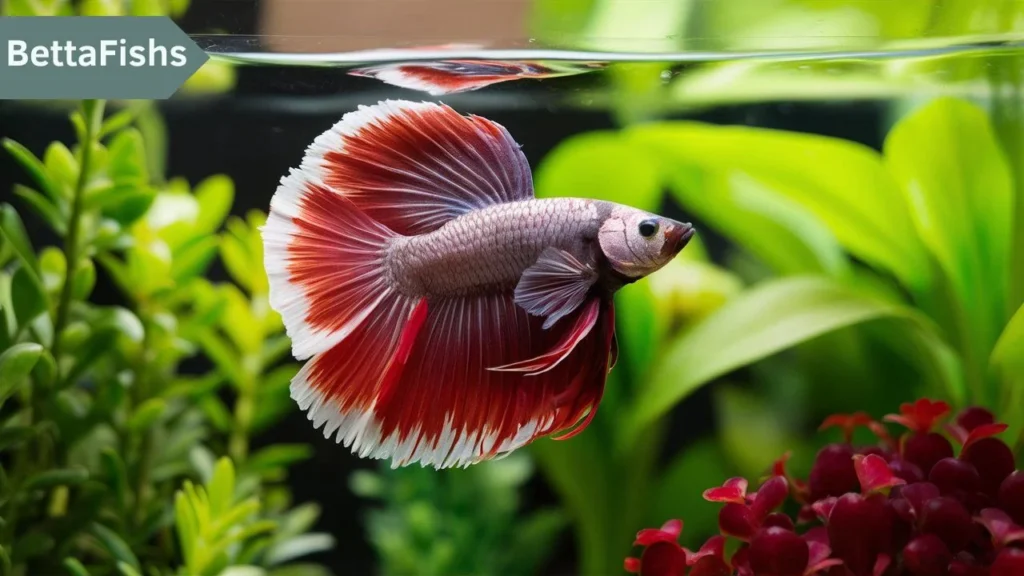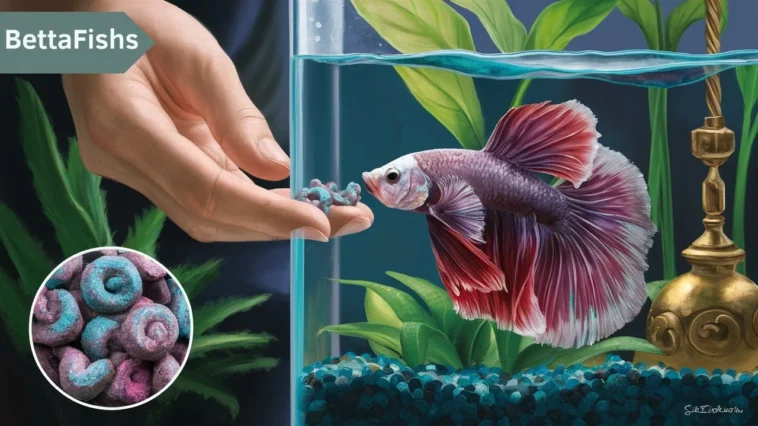Betta fish, known for their vibrant colors and unique personalities, are a popular choice among aquarium enthusiasts. While most Betta owners understand the basics of caring for these beautiful fish, questions about their diet often arise.
One of the most common inquiries is whether Betta fish can eat tropical flakes. In this guide, we’ll dive deep into this topic, exploring whether tropical flakes are suitable for Betta fish and what alternatives might be better for their diet.
Betta Fish Diet
Betta Fish: Carnivores by Nature
Betta fish, also known as Siamese fighting fish, are carnivorous by nature. In the wild, they primarily feed on insects, larvae, and other small aquatic creatures. Their diet is rich in protein, which is essential for their growth, energy, and vibrant coloration.
What Do Betta Fish Eat in the Wild?
Opportunistic feeders, betta fish are in their native environment. They consume a variety of small prey, such as mosquito larvae, tiny crustaceans, and zooplankton. This high-protein diet is key to their survival and overall well-being.
The Nutritional Content of Tropical Flakes
What Are Tropical Flakes Made Of?
Tropical flakes are a common type of fish food designed to meet the nutritional needs of a variety of freshwater tropical fish. They typically contain a mix of plant-based ingredients, proteins, vitamins, and minerals. While they are formulated to be a balanced diet for many fish, they are not specifically tailored to the dietary needs of carnivorous fish like Bettas.
Do Tropical Flakes Meet Betta Nutritional Needs?
The short answer is no. While tropical flakes contain some protein, they often lack the high protein content and essential nutrients that Betta fish require. Betta fish need a diet that is rich in animal-based proteins, and while tropical flakes can provide some nutrition, they are not an ideal primary food source.
Can Betta Fish Eat Tropical Flakes?
Why Some Betta Owners Feed Tropical Flakes
Some Betta owners choose to feed their fish tropical flakes due to convenience or because they already have other fish that eat flakes. In some cases, Bettas may eat tropical flakes without immediate harm, but this does not mean that flakes are the best option for them.
The Pros and Cons of Feeding Tropical Flakes to Betta Fish
Pros:
- Convenience: Easy to find and often already available.
- Variety: Can provide a change in diet from regular Betta pellets.
Cons:
- Nutritional Gaps: Lacks the necessary protein and nutrients for Bettas.
- Overfeeding Risk: Bettas might consume more than needed, leading to bloating and other health issues.
- Reduced Color Vibrancy: A diet lacking in proper nutrients can lead to dull coloration.

Alternatives to Tropical Flakes
Betta-Specific Pellets
Betta-specific pellets are specially formulated to meet the dietary needs of Betta fish. They are high in protein and contain essential nutrients that support their health, growth, and coloration. These pellets are often the best option for daily feeding.
Frozen and Live Foods
Frozen and live foods, such as bloodworms, brine shrimp, and daphnia, are excellent sources of protein for Betta fish. These foods closely mimic what Bettas would eat in the wild and can be a great supplement to their diet. Offering these foods a few times a week can provide variety and ensure your Betta gets all the nutrients they need.
Homemade Betta Food
For those who prefer a DIY approach, homemade Betta food can be a great option. You can create a mixture of high-protein ingredients like fish, shrimp, and vegetables, freeze them, and then cut them into small portions. This ensures that your Betta is getting a balanced diet tailored to their needs.
How to Feed Your Betta Fish
Proper Portion Sizes
Bettas have small stomachs, roughly the size of their eye, so it’s important to feed them small portions. Overfeeding can lead to bloating, constipation, and even more severe health issues.
Feeding Frequency
Feeding your Betta fish 1-2 times a day is usually sufficient. It’s better to feed small amounts more frequently than to overfeed in one sitting. Always remove any uneaten food to prevent water contamination.
Avoiding Overfeeding
Overfeeding is a common mistake among Betta owners. It’s easy to assume that your Betta is still hungry, but sticking to a regular feeding schedule and portion size is crucial for their health.
Signs of a Healthy Betta Diet
Vibrant Colors and Active Behavior
A healthy Betta fish on a proper diet will display bright, vibrant colors and be active in their environment. Their fins should be full and flowing, and they should respond eagerly during feeding times.
Proper Growth and Development
If your Betta is receiving the right nutrients, they will grow properly and maintain a healthy weight. You should notice consistent growth without any signs of bloating or malnourishment.
Common Mistakes in Betta Fish Feeding
Overfeeding
As mentioned earlier, overfeeding is a major concern for Betta owners. It can lead to a variety of health issues, including obesity and digestive problems. Always measure out food carefully and avoid the temptation to give them extra.
Feeding the Wrong Foods
Feeding your Betta the wrong foods, such as tropical flakes or foods intended for other fish species, can result in nutritional deficiencies. It’s crucial to provide food specifically formulated for Bettas or high in protein.
Ignoring Dietary Variety
Just like humans, Bettas benefit from a varied diet. Relying solely on one type of food can lead to boredom and nutritional gaps. Mixing in different types of food ensures a well-rounded diet.

Conclusion
While Betta fish can technically eat tropical flakes, they are not the ideal food for these carnivorous creatures. Betta-specific pellets, along with a variety of frozen, live, and homemade foods, are much better options to ensure your Betta thrives. By understanding your Betta’s dietary needs and avoiding common feeding mistakes, you can help your Betta live a long, healthy, and vibrant life.
FAQs
1. Can Betta fish survive on tropical flakes alone?
While they might survive, tropical flakes do not provide the necessary protein and nutrients for long-term health.
2. How often should I feed my Betta fish?
Feeding 1-2 times a day in small portions is ideal for Betta fish.
3. Can I mix tropical flakes with other Betta foods?
Yes, but it’s better to prioritize Betta-specific foods and use tropical flakes sparingly.
4. What happens if I overfeed my Betta fish?
Overfeeding can lead to bloating, constipation, and poor water quality, which can harm your Betta.
5. Are live foods better than pellets for Bettas?
Live foods can be a great supplement, but pellets are more convenient and provide balanced nutrition when chosen correctly.





Really enjoyed this post! You explained everything so well.